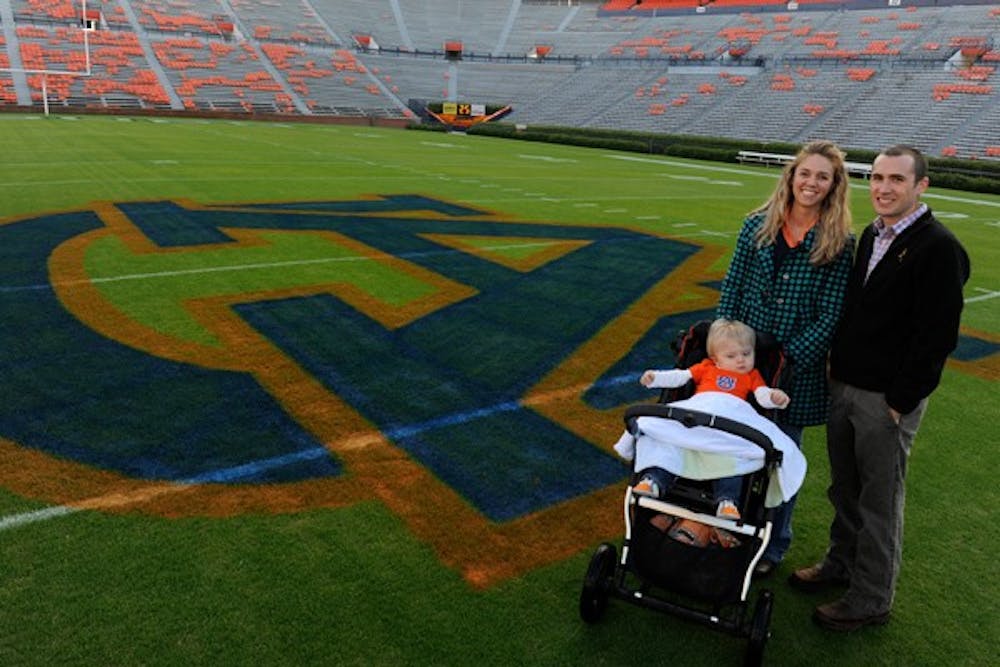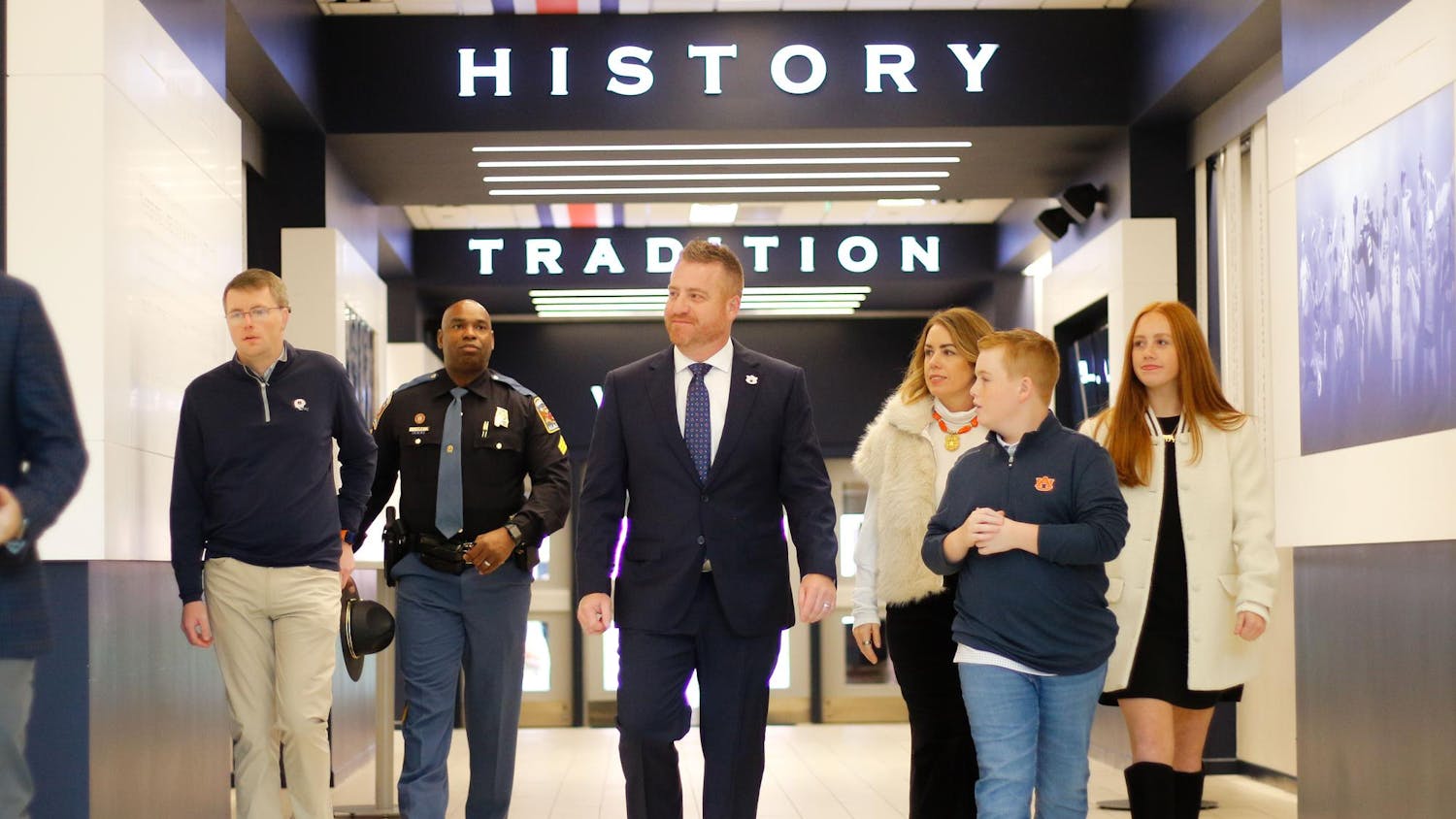GM1 gangliosidosis is estimated to occur in one in 100,000 to 200,000 newborns.
GM1 is an inherited lysosomal storage disorder that gradually destroys nerve cells in the brain and spinal cord that currently has no effective cure and little treatment. As a result, those with this disease usually do not survive past early childhood.
For Auburn graduates and Opelika, Alabama, residents Sara and Michael Heatherly, the one in 100,000 happened to be their son Porter Heatherly.
Porter Heatherly, the first GM1 case in Alabama, was born on September 14, 2012 and diagnosed shortly thereafter. Sara and Michael Heatherly said he was born in good health. It wasn't until a few months later they realized he was not tracking objects as well as they thought he should have been.
After taking him to the doctor, it was observed that he had cherry dots in the backs of his eyes, leading to his GM1 diagnosis. After he was diagnosed, the couple found out that there was GM1 research being conducted in Auburn at the Scott-Ritchey Research Center, a part of Auburn’s College of Veterinary Medicine.
They took Porter there to meet GM1 researcher, professor and fellow church member Doug Martin.
“After meeting Porter, their focus completely changed” Martin said in a media session discussing GM1 research developments.
From that point on, the Heatherlys and Scott-Ritchey Research Center decided that they would celebrate Porter’s birthday every month. Shortly after he died in 2016, the Heatherlys decided to raise as much money as they could for GM1 research.
They began a fundraiser every year on Porter’s birthday.
“Research gave Porter’s life more meaning,” Michael Heatherly said.
Three fundraisers have already raised almost $100,000. The fundraiser is held at the Auburn University club golfing course and has both live and silent auctions.
As a tribute to Porter and his family, Scott-Ritchey changed its logo to resemble Porter’s profile.
Furthermore, the Heatherlys said the gene-therapy research began strictly for research purposes, but they hope it can also be transitioned to help other families with children diagnosed with GM1.
As the Heatherlys continue to give Auburn researchers motivation to find a cure, the researchers are using that motivation to do just that.
The first clinical trial of a gene therapy treatment produced through a research cooperation between Auburn University and the University of Massachusetts has been administered in a child at the National Institutes of Health (NIH) in Bethesda, Maryland.
The NIH clinical trial is significant as it was initiated and created at Auburn University’s College of Veterinary Medicine, where scientists originally aimed to improve and lengthen the lives of cats affected by GM1.
After finding out about the development of this treatment, the Heatherlys were excited and thankful that progress was being made.
“It’s a full-circle moment having someone be treated for the disease,” Sara Heatherly said. “Knowing the research and treatment can save lives is encouraging.”
Dealing with the loss of a child is never easy, but the impact it has caused on many others will never be forgotten.
“Through a hard time, life has been really good,” Sara Heatherly said. “There really is a lot of hope and a lot of good that can come from a bad situation.”
Do you like this story? The Plainsman doesn't accept money from tuition or student fees, and we don't charge a subscription fee. But you can donate to support The Plainsman.





